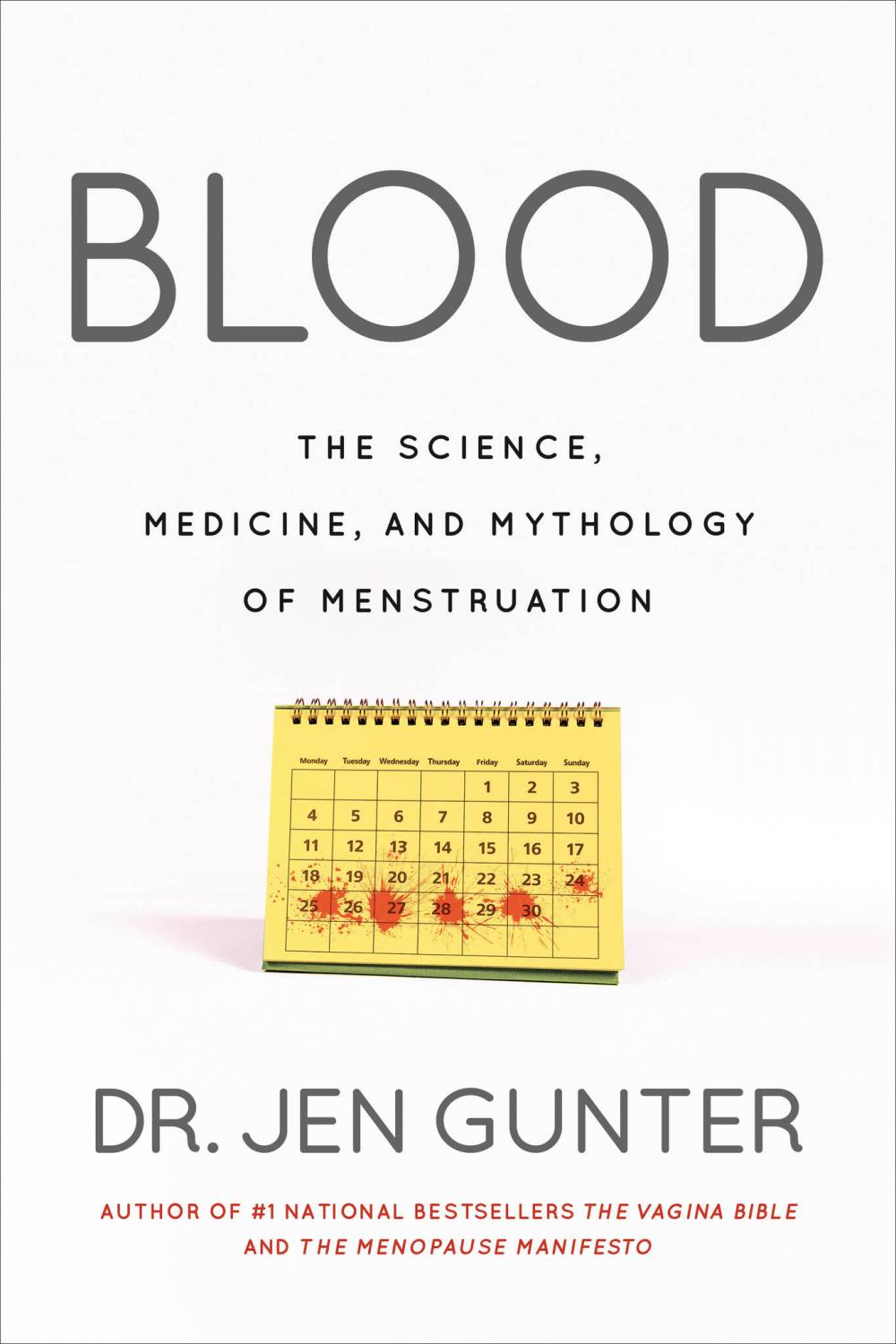In Conversation: Dr. Jen Gunter
Advertisement
Read this article for free:
or
Already have an account? Log in here »
To continue reading, please subscribe:
Monthly Digital Subscription
$1 per week for 24 weeks*
- Enjoy unlimited reading on winnipegfreepress.com
- Read the E-Edition, our digital replica newspaper
- Access News Break, our award-winning app
- Play interactive puzzles
*Billed as $4.00 plus GST every four weeks. After 24 weeks, price increases to the regular rate of $19.95 plus GST every four weeks. Offer available to new and qualified returning subscribers only. Cancel any time.
Monthly Digital Subscription
$4.99/week*
- Enjoy unlimited reading on winnipegfreepress.com
- Read the E-Edition, our digital replica newspaper
- Access News Break, our award-winning app
- Play interactive puzzles
*Billed as $19.95 plus GST every four weeks. Cancel any time.
To continue reading, please subscribe:
Add Free Press access to your Brandon Sun subscription for only an additional
$1 for the first 4 weeks*
*Your next subscription payment will increase by $1.00 and you will be charged $16.99 plus GST for four weeks. After four weeks, your payment will increase to $23.99 plus GST every four weeks.
Read unlimited articles for free today:
or
Already have an account? Log in here »
Hey there, time traveller!
This article was published 01/03/2024 (724 days ago), so information in it may no longer be current.
There are two T-shirt emblazoned slogans that are peak Winnipeg.
The first is “Keepin’ it Riel,” which encapsulates Red River’s and then Winnipeg’s embattled history as the homeland of the Métis Nation and the site of the River River Resistance.
The second is “Bitch, I’m from Winnipeg.” This was what Twitter’s (now X) Resident Gynecologist, Dr. Jen Gunter, retorted in the bad old days (circa 2017) when she was criticized for criticizing the Gwyneth Paltrow/GOOP jade yoni eggs intended to somehow improve women’s vaginal health.
These days, Louis Riel’s role as “Manitoba’s Father of Confederation” has been recognized, at least in part, by naming the February statutory holiday after him.
And while Dr. Gunter, who was born and raised in Winnipeg and attended both the University of Winnipeg and the University of Manitoba, now lives in California, she always brings her best-selling books home to Winnipeg.
The board certified OB/GYN and pain management specialist’s books include The Preemie Primer (2010), The Vagina Bible (2019) and The Menopause Manifesto (2021). Gunter also writes columns “about the intersection of women’s health, sex, science, and pop culture” for the New York Times.
She will be launching her fourth book, Blood: The Science, Medicine, and Mythology of Menstruation, in Winnipeg March 8. Her McNally’s event, held at the WAG’s Muriel Richardson Auditorium and featuring Dr. Joss Reimer, chief medical officer for the Winnipeg Regional Health Authority, is sold out. She is also giving the opening remarks at a panel discussion on menstrual equity and justice at the University of Manitoba earlier in the day.
Free Press: What do you want people to know about Blood?
Dr. Jen Gunter: We should be able to talk about the menstrual cycle like we can talk about any other body function or part. Nothing bad will happen, I promise. And that even if you are someone who has had a menstrual cycle for many years, you will learn something valuable.
FP: What were your goals for this book?
JG: To get people talking about the menstrual cycle and teach everyone how it works. After all, everyone has benefitted from a menstrual cycle. Otherwise, you wouldn’t be reading this! I want to remove shame and educate. Because with knowledge, you will know if you are getting good care and, if not, how to advocate for it. In addition, knowledge will help you avoid the ever-growing business of menstrual scams.
FP: So I have a t-shirt from a local company, We Heart Winnipeg, that reads: “Bitch, I’m from Winnipeg.” When asked, I always explain the provenance, the intersection between Gwyneth Paltrow/GOOP’s jade yoni egg and your role as X’s Resident Gynecologist, debunking myths about women’s reproductive systems. But I’m curious: can you unpack what you meant by “Bitch, I’m from Winnipeg?” for people from Winnipeg? What ethos/worldview are you trying to evoke?
JG: Well…I believe Winnipeggers have a lot of common sense, so part of that retort comes from that ethos. As in, you aren’t even worthy of a real reply from me. But Winnipeggers are also resilient, resourceful and creative, so the idea that a little insult will have an impact is almost funny. I mean, I went to the bar in February wearing a mini-dress and high-heeled shoes and some Internet troll thinks I’m going to cry because they were mean to me? Please. And finally, I proudly cultivated my potty mouth in Winnipeg, so I think “Bitch, I’m from Winnipeg” really plays homage to all those concepts.
FP: Even though, as a society, we are getting better at talking about previously taboo subjects, from mental health issues to gender/sexuality, menstruators still seem embarrassed to talk about menstruating. Why is that, do you think?
JG: The short answer is the patriarchy. If you can make people feel ashamed about their bodies, it is much easier to weaponize their own physiology against them. So many of us carry the legacy of thousands of years of shame. And given the ongoing proliferation of “feminine hygiene” products to “improve” vaginas and vulvas, it often seems like we haven’t moved the needle that much.
FP: If you wanted to leave menstruators and the people who love them with one message, what would it be?
JG: Menstruation is the wheel that drives humanity. Without the menstrual cycle, we would have evolved into a different species. We should not be punishing half the population for this, either through shame, expensive menstrual products, inadequate research into menstrual cycle-related health conditions, or more difficulties accessing health care (to name a few ways people who menstruate are disadvantaged). But we need knowledge and the ability to discuss this freely to take those steps.
Ariel Gordon is a Winnipeg writer. She co-edited the literary anthology GUSH: menstrual manifestos for our age (Frontenac House, 2018), alongside Tanis MacDonald and Rosanna Deerchild.











